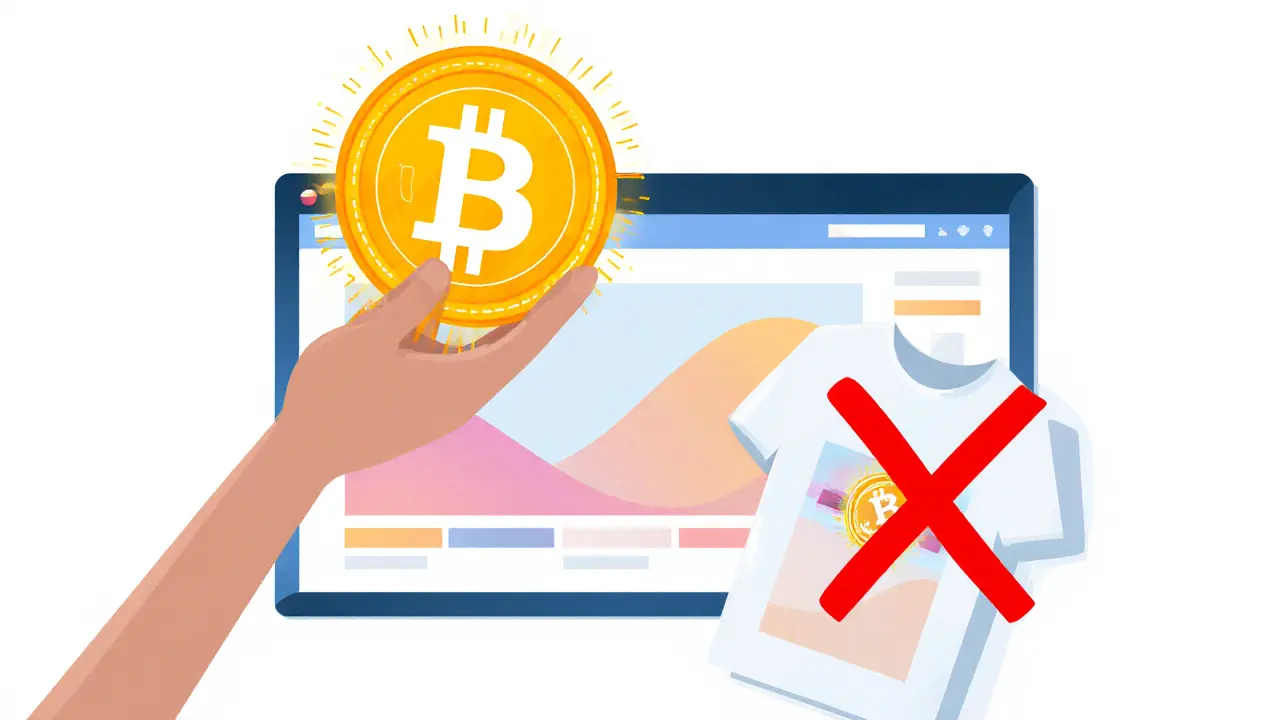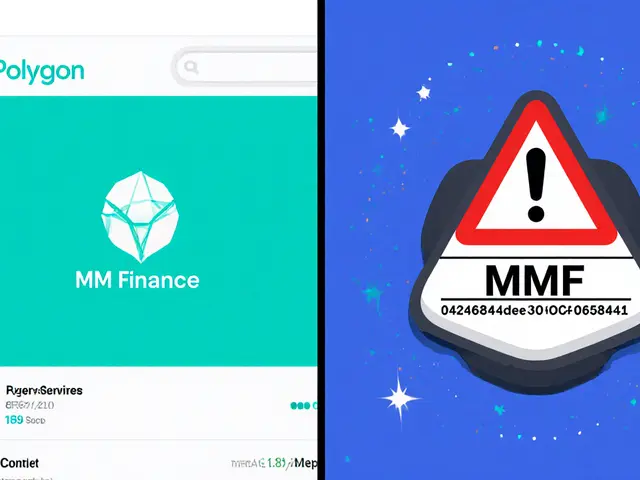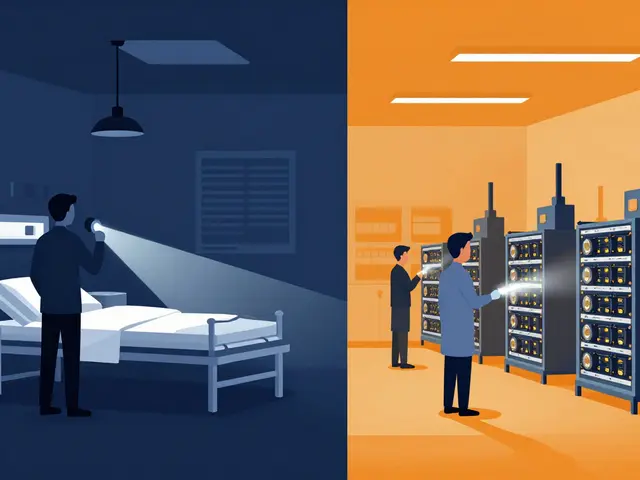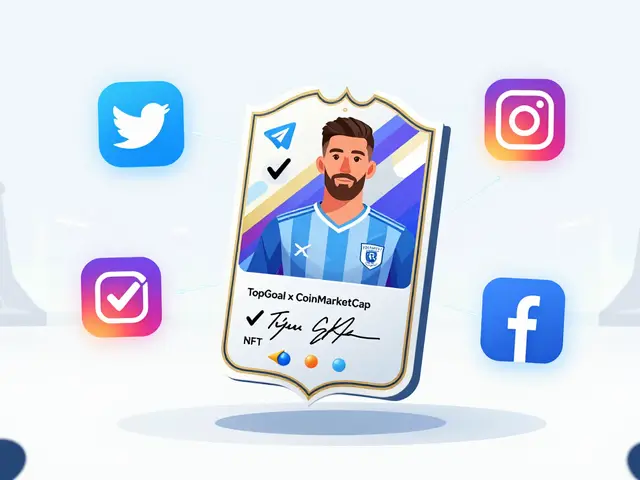NFT Ownership Rights Checker
What You Own With NFTs
When you buy an NFT, you own a unique digital certificate on the blockchain, but not the underlying artwork or copyright. Most projects don't grant commercial rights. This tool helps you understand what rights you actually have.
Project License Type
Your Intended Use
When you buy an NFT of a digital artwork, you’re not buying the image itself. You’re buying a token on the blockchain that points to it. This is the biggest misunderstanding in the entire NFT space. People spend thousands - sometimes millions - thinking they own the art like they own a painting on their wall. But that’s not how it works. Owning the NFT doesn’t mean you can print it on a T-shirt, sell posters, or use it in your movie. Unless the project says so, you can’t even do that.
What You Really Own With an NFT
You own a unique digital certificate. That’s it. The NFT is a string of data stored on a blockchain - usually Ethereum or Solana - that proves you’re the current owner of that specific token. Think of it like a numbered collector’s card. The card itself has value because it’s rare and you have it. But the card isn’t the player. It doesn’t give you the right to use the player’s name or image in a video game. The same applies to NFT art.
The actual artwork - the JPEG, PNG, or animated file - is usually hosted on a server somewhere, not on the blockchain. The NFT just holds a link to it. If that server goes down, the image could disappear. That’s why some projects now store art on decentralized networks like IPFS, but even then, you still don’t own the copyright.
The legal documents that come with most NFTs are clear: NFT is a digital token representing ownership of a unique item on a blockchain, but not the intellectual property rights to the content it references. The copyright stays with the artist or the project team. You can’t sue someone for copying the image because you don’t hold the rights to stop them. Only the original creator can do that.
The Three Types of NFT Art Licenses
Not all NFTs are the same when it comes to rights. There are three main models, and knowing which one you’re buying changes everything.
- No Rights / Silence: Most NFT projects fall here. The terms don’t say much. They don’t give you permission to use the art commercially. You can display it in your digital wallet or on your profile. That’s it. Printing it? Selling merch? Making a meme? That’s copyright infringement. Projects like early CryptoPunks and many indie collections use this model. You own the token, not the art.
- Personal Use Only: Some projects explicitly allow you to display the art for personal use - like setting it as your profile picture or showing it on your website. But no selling, no ads, no products. This is common in smaller NFT drops where the artist wants to protect their brand.
- Commercial Rights: This is the rare but valuable kind. Projects like Bored Ape Yacht Club (BAYC), CryptoPunks (after March 2022), and Art Blocks let you use the image for business. You can make T-shirts, NFT-based games, movies, or even open a café with the art on the walls. You can license it to others too. These projects often have a license agreement built into their smart contract. A DappRadar report from Q2 2023 found that NFTs with commercial rights had, on average, 37% higher floor prices than those without.
Don’t assume anything. Even if a project looks popular, check the fine print. A lot of people bought NFTs thinking they could make money off the art - only to get a cease-and-desist letter later.
Real-World Examples of Rights Gone Wrong
In 2022, a man bought a CryptoPunk NFT and tried to trademark the image for use on clothing. Yuga Labs, the company behind CryptoPunks, sued him. Why? Because they still owned the copyright. The buyer had the token, not the rights. The court sided with Yuga Labs.
Another case involved the Nouns NFT project. Some buyers thought the CC0 license (which means public domain) applied to the entire Nouns brand. They started selling Nouns-themed merchandise and even tried to register the Nouns name as a trademark. The project creators clarified: CC0 only applies to the specific Noun image you own - not the overall concept or logo. Others who copied the style were still free to do so.
Even big names aren’t immune. Jack Dorsey sold his first tweet as an NFT for $2.9 million. The buyer didn’t get the right to repost the tweet or use it in ads. They got a digital certificate signed by Dorsey - like an autograph on a photo. The tweet itself? Still public. Anyone can screenshot it. The NFT just proves you own the verified original version.
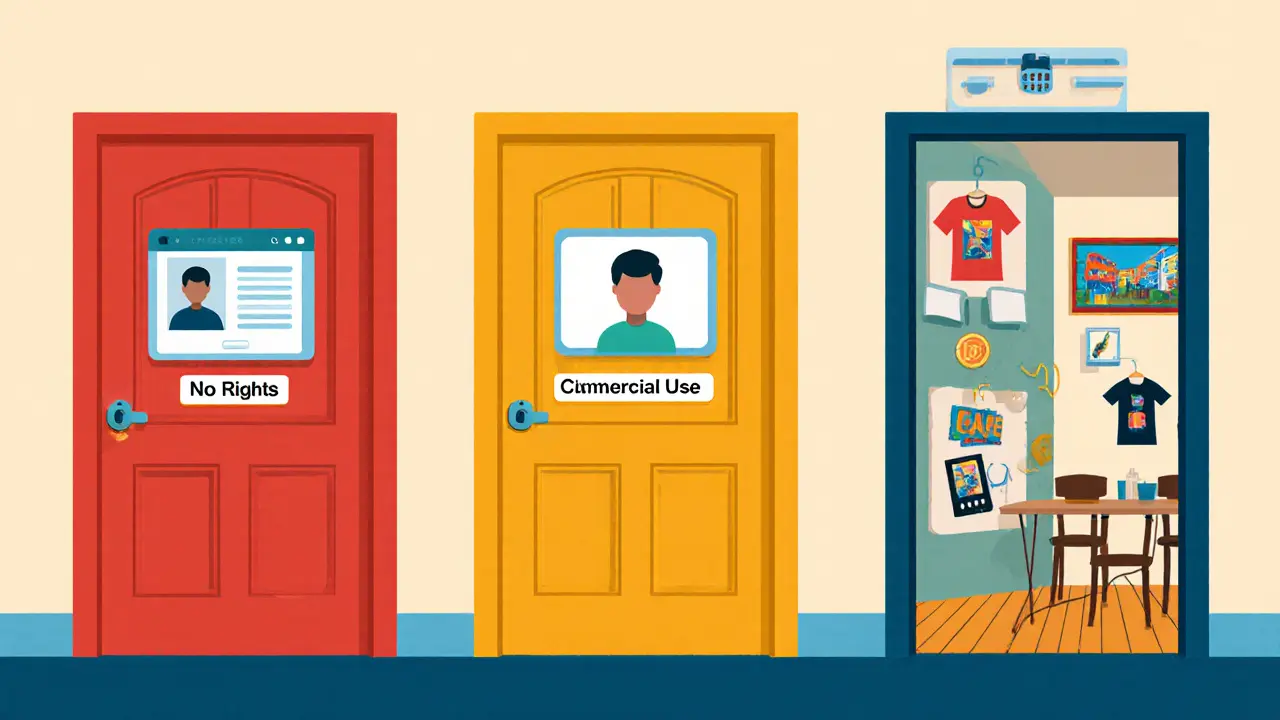
Why This Confusion Exists
People expect NFTs to work like physical art. If you buy a Picasso, you can hang it in your living room, take photos of it, even sell prints - because you own the physical object. But digital art isn’t physical. There’s no original canvas. The file is copied every time someone downloads it. So the only way to create scarcity is through the blockchain token.
Marketplaces like OpenSea and LooksRare don’t explain this clearly. A CoinGecko survey in 2023 found that only 32% of NFT marketplaces show IP rights information at the point of sale. Most buyers click “Buy Now” without reading the terms. A 2023 DappRadar survey showed 68% of NFT owners didn’t fully understand what rights they had.
Artists, too, are often confused. Many mint NFTs without writing clear license terms. Some even use artwork they didn’t create. That’s a legal disaster waiting to happen. If you’re an artist, never mint someone else’s art as an NFT. You could be sued for copyright infringement.
What You Should Do Before Buying
If you’re thinking of buying an NFT for its art, here’s your checklist:
- Find the official project website. Never trust the marketplace alone. Go directly to the project’s site - the one linked in their Twitter or Discord.
- Look for the License Agreement. Search for “Terms of Use,” “IP License,” or “Rights.” If it’s not there, assume you have no rights beyond display.
- Check the smart contract (if you’re technical). Some projects publish their code on Etherscan. Look for keywords like “license,” “copyright,” or “commercial use.”
- Ask: Can I make money from this? If the answer isn’t a clear “yes,” then you’re buying a collectible - not a business asset.
- For high-value purchases, get legal advice. If you’re spending $10,000 or more, spend $500 on a lawyer to read the terms. It’s cheaper than getting sued.
And remember: NFT marketplaces don’t guarantee anything. OpenSea doesn’t check if the art is copyrighted. They don’t verify licenses. They’re just a platform. You’re buying from the artist - not from OpenSea.
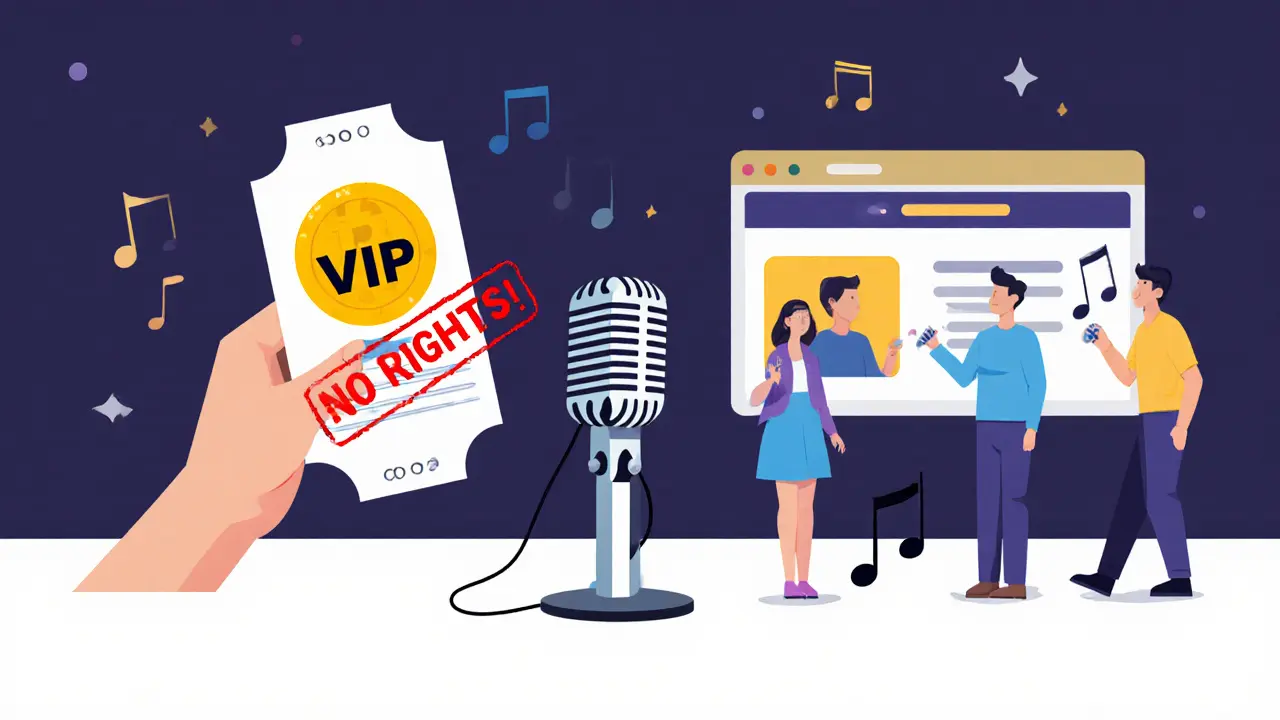
The Future of NFT Rights
The legal landscape is slowly catching up. The U.S. Copyright Office has received over 1,200 NFT-related copyright applications since 2021 - but almost all of them are for the artwork, not the token. The World Intellectual Property Organization (WIPO) launched a dedicated NFT working group in March 2023 to help countries create clearer rules.
Brands are getting smarter. A Deloitte report found that 73% of major companies now include clear IP terms in their NFT projects, up from 41% in 2021. But independent artists? Only 28% do. That’s a huge gap.
There’s also a new twist: AI-generated NFTs. If an NFT is made entirely by AI with no human input, the U.S. Copyright Office says it’s not protected by copyright. That means anyone can copy it. And since 18% of NFT art sales in 2023 were AI-generated, this is becoming a major legal gray area.
One thing’s certain: the NFT market won’t grow without clear rights. PwC predicts the market will hit $136 billion by 2028 - but only if buyers know what they’re actually buying. Right now, too many people are treating NFTs like digital real estate when they’re really just digital receipts.
Final Takeaway
Buying an NFT is like buying a VIP ticket to a concert. You get in. You get a numbered seat. But you don’t own the band’s music. You can’t sell the songs. You can’t cover them on YouTube without permission. The same applies to NFT art. The token proves you were there. It doesn’t give you the right to use the art.
Know what you’re paying for. If you want to make money from the art, only buy NFTs that explicitly say you can. If you’re buying for fun or collectibility, fine - just don’t pretend you own the image. The difference isn’t just legal. It’s financial. And it’s the reason so many NFT buyers end up disappointed.
Can I print my NFT art and sell it as posters?
Only if the NFT project’s license explicitly allows commercial use. Most don’t. Printing and selling NFT art without permission is copyright infringement, even if you own the token. Always check the project’s official terms before doing anything beyond personal display.
Do I own the copyright if I buy an NFT?
No. The copyright stays with the original creator unless they explicitly transfer it in writing. NFTs are not copyright transfers. They’re ownership records of a blockchain token. You own the token, not the artwork’s legal rights.
What’s the difference between owning an NFT and owning the digital file?
Owning the NFT means you control the unique blockchain token linked to the artwork. Owning the digital file means you have a copy of the image on your computer - which anyone can download. The NFT proves you’re the verified owner of that specific token. The file? It’s everywhere. That’s why the NFT has value, not the image itself.
Can I use my Bored Ape NFT in a movie or on a T-shirt?
Yes. Bored Ape Yacht Club (BAYC) grants holders a commercial license to use their specific Ape image for merchandise, films, games, and more. This is rare. Most NFTs don’t offer this. Always confirm the license applies to your specific NFT - not the whole collection.
Are NFTs protected by copyright?
No. The NFT itself - the blockchain token - is not copyrightable. It’s just data. Copyright protects the underlying artwork: the image, music, or video linked to the NFT. That’s what the artist holds the copyright to. The NFT is just proof of ownership of the token, not the content.
What happens if the server hosting my NFT art goes down?
You still own the NFT token. But the image might disappear if it’s hosted on a centralized server. Projects using decentralized storage (like IPFS) are safer. Always check how the artwork is stored before buying. The token’s value doesn’t vanish, but the art it represents might become inaccessible.
Can I resell my NFT?
Yes. Owning an NFT includes the right to resell the token on marketplaces. That’s a basic feature of NFTs. But reselling the token doesn’t transfer any copyright or usage rights to the buyer unless the license says so. The new owner gets the token - not the rights to use the art - unless the project grants them.
Are AI-generated NFTs legal?
It depends. If the artwork was made entirely by AI with no human creative input, the U.S. Copyright Office won’t protect it. That means anyone can copy it. If a human curated, edited, or directed the output, it may be protected. But many AI-generated NFTs exist in a legal gray zone - and buyers should proceed with caution.
